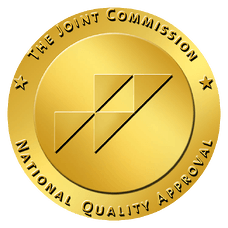Different Levels of Addiction Recovery Treatment
Navigating Addiction Treatment: Understanding the Different Levels

First and foremost, congratulations on taking the courageous step of acknowledging your addiction. Now, your journey entails finding the right addiction treatment tailored to your specific needs and understanding the potential symptoms of withdrawal. It's crucial to recognize that not all addicts require the same level of care. Factors such as the type and duration of substance abuse, coexisting medical conditions, employment status, and various other considerations all play a role in determining the most suitable treatment approach. At Wabash Recovery, we prioritize each patient's well-being and provide comprehensive assessments to determine the most effective and affordable treatment options. Gaining insight into the various levels of addiction treatment will empower you to make informed decisions about your recovery journey.
Inpatient vs. Outpatient Detoxification:
Detoxification marks the initial phase of addiction treatment, and it's vital to address it correctly. Your body has become accustomed to the presence of substances, whether alcohol, meth, steroids or any other. The specific substances, quantity, and combinations can significantly impact your detox experience. Additionally, pre-existing health issues, including the risk of seizures, must be considered. Many individuals opt for outpatient detox. This involves an initial hour of assessments to determine if medication is necessary to stabilize the body during withdrawal. Subsequently, patients return daily for 10 to 20-minute check-ups, allowing them to maintain their work or school commitments. However, it's important to remember that withdrawal symptoms can affect physical and mental well-being. Inpatient detox follows a similar process, but patients stay at the treatment center. Those with severe addiction may benefit from the increased medical supervision in an inpatient detox setting and experienced staff support. An inpatient detox program significantly reduces the risk of relapse or prematurely ending recovery.
Intensive Outpatient, 28-Day, and Extended Care Addiction Treatment:
Determining the most suitable treatment program requires thoroughly examining your history and lifestyle in consultation with an addiction professional. The overarching goal of addiction treatment is to equip you with the tools needed to lead a life free from drugs or alcohol. Inpatient programs like the 28-day and Extended Care options provide a structured environment where patients can delve into the root causes of their addiction and learn healthier ways of living. These programs combine individual, group, and family therapy with holistic healing approaches to address the core issues of addiction. The 28-day programs offer holistic care through daily routines, specialized group therapy, and life skills classes.
Extended Care Addiction Treatment at Wabash Recovery represents the most extended and intensive addiction treatment program. It shares similarities with the 28-day program but extends to up to 90 days. This program is recommended for individuals with a higher risk of relapse due to internal or external factors. If you have a coexisting mental illness such as bipolar disorder or PTSD, work in an environment involving controlled substances, have experienced trauma, or lack a robust support system, Extended Care may be the most suitable treatment path.
Patients enrolled in Intensive Outpatient programs often transition from inpatient programs, but individuals with milder addictions may also directly join these programs. In these outpatient programs, individuals reside at home and maintain regular work or school routines. They meet with addiction treatment specialists, participate in therapy groups, and undergo family therapy sessions several times a week. Whether you are on the path to recovery or just beginning the journey toward a substance-free life, intensive outpatient programs provide the structure and support needed to prevent relapse.
Regardless of your specific program, you are embarking on a transformative journey toward a new life. This process is not merely an event that concludes when you leave the treatment facility. The people you encounter along the way will be instrumental in guiding you through detox, withdrawal, and recovery, and they will continue to support you as you navigate life outside the treatment environment. Maintaining a positive mindset and reaching out to others for assistance will be key to sustainable recovery.






